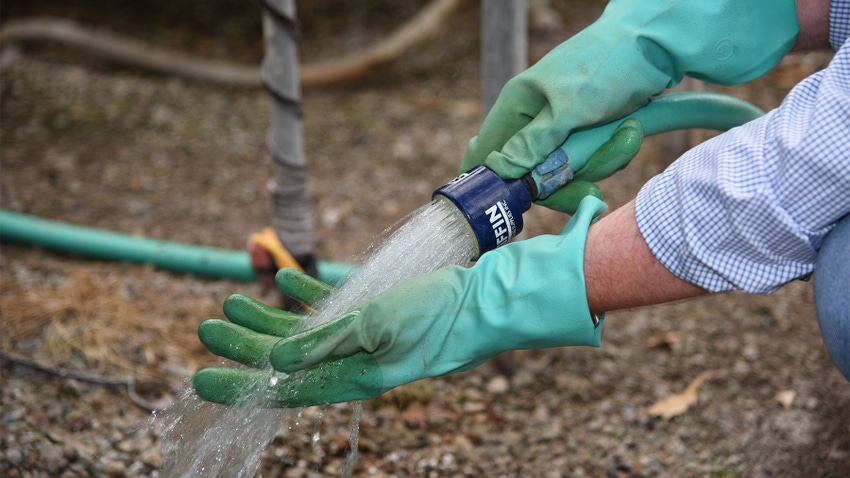April 9, 2024

Seeds are in the ground, the sprayer is checked over and it’s time to apply herbicides to keep the weeds at bay. What about personal protective equipment? Where is the right safety gear?
Before you catch yourself in that situation of being “underdressed,” spend time now gathering PPE to keep yourself safe when the time arrives. Fred Whitford, director of Purdue Pesticide Programs, understands that not everyone wants to hear this.
“Nobody wants to be told they have to wear anything,” Whitford says. “The bottom line in talking about safety equipment is people just do not want to talk about it.”
He explains that folks typically won’t get caught by the state regulatory agency if they’re not wearing the correct PPE. However, he says the concern should not be about getting in trouble; it should be about doing what is best for you, your family and your employees.
What does the label say?
Selecting PPE starts with scanning the product label and looking for signal words to indicate the toxicity of the chemical. Whitford says he always recommends wearing jeans, a long-sleeve shirt and gloves. Safety glasses are also important for products with the signal word “danger.”
“If you’ve ever got 2,4-D in your eye or in a cut, you’ll understand what that means,” he adds.
Some products with higher toxicity can require a respirator. Whitford explains that it’s important to consult your doctor before using those products because they can make breathing more difficult. This can make other medical conditions worse by stressing the lungs and heart. He notes that beards can interfere with the mask’s effectiveness in properly sealing the face.
For those who can’t wear respirators or would like to avoid them, Whitford says the easiest solution is using a product that does not require one. He adds, “I wish people would get off those products and go with the products that do not require respirators, which is most of them. That solves the problem.”
What PPE to avoid
Whitford says to use extra caution when wearing some items, such as aprons. They can easily get caught in moving parts and cause more harm than good.
“We all know friends who have lost legs and arms and fingers,” Whitford says. “When you have a long apron, pay special attention when working around moving parts.”
Another item to avoid, if possible, is Tyvek suits. Whitford explains that while they have their place, they are not a safe option when handling chemicals in the heat. A variety of heat-related issues can arise with those suits, so he recommends keeping them out of the chemical PPE toolkit unless the product label requires them. In that case, it’s important to stay hydrated and take breaks.
“If you don’t like to wear all of this stuff, then get another product,” Whitford says. “That solves the problem. Just be a little bit more selective so you can get something that doesn’t require very much, so you can work a little quicker without having to wear all this stuff. But always keep in mind that using gloves is in your best interest.”
About the Author(s)
You May Also Like






